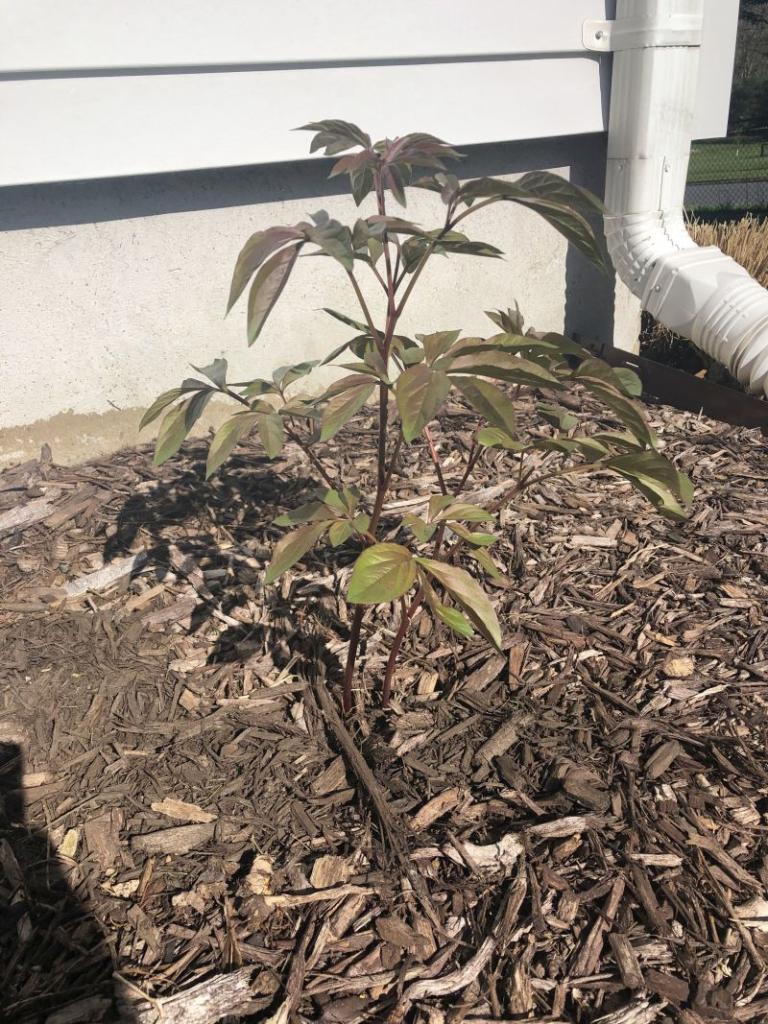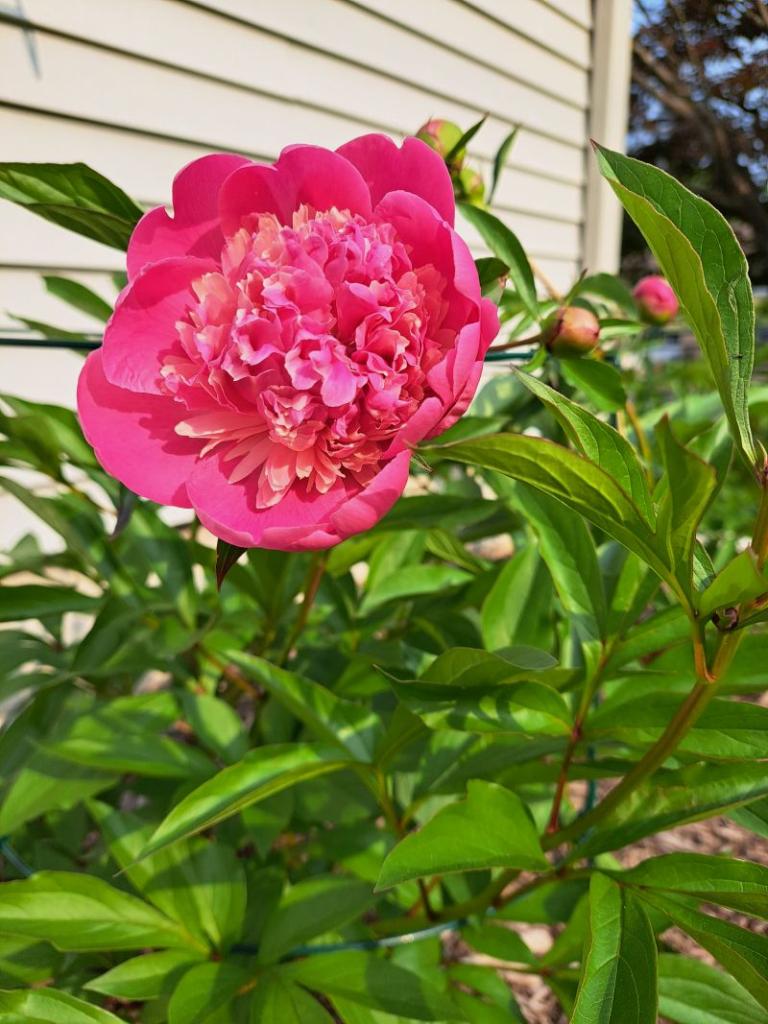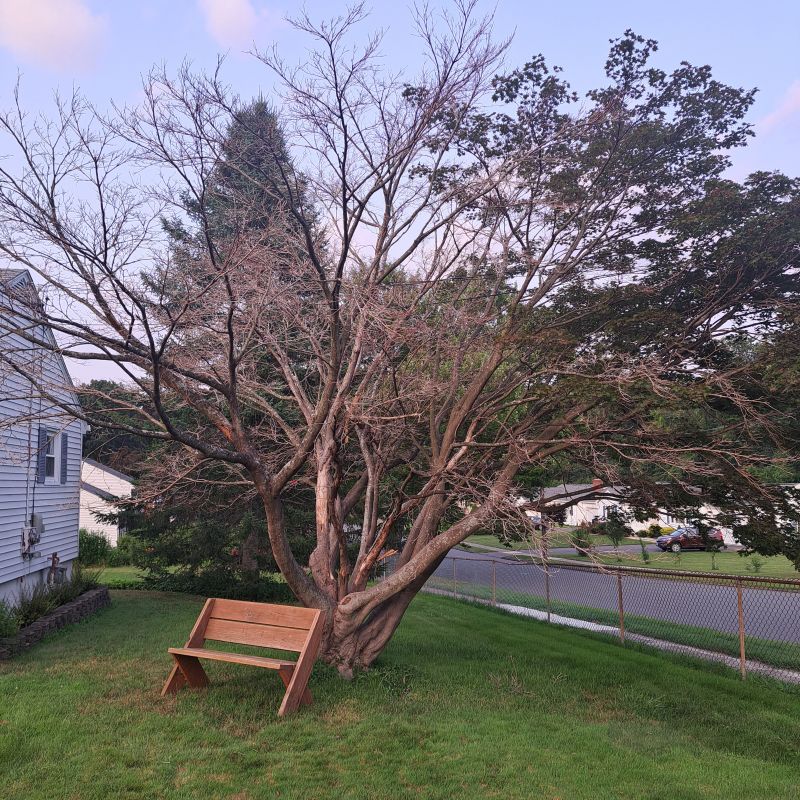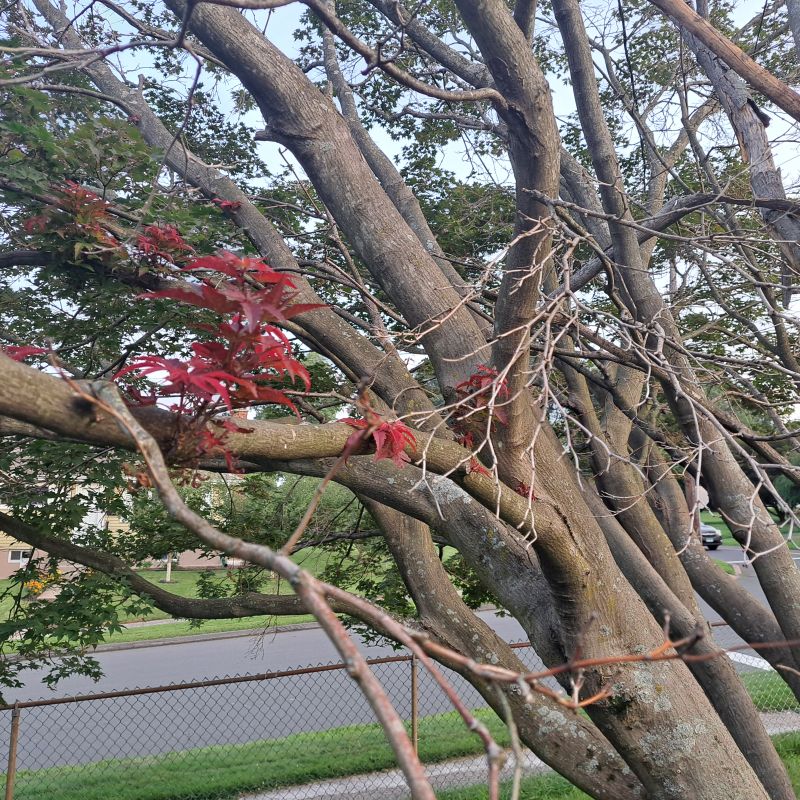My wife and I purchased our first home in 2020 and moved in the week everything shutdown because of COVID-19. Talk about timing! Since then, we’ve embraced milestones in adulting: sharing a space together, getting married, learning to fix a home, cultivating routines, and creating family traditions. Along the way, we’ve learned a lot about ourselves individually and as a couple. As a Catholic husband and father, I’ve learned about myself through plants!
Learning to Keep Things Simple

One summer, my sister-in-law gave me a couple peonies to transplant. As a background, the peonies were originally mowed over by her husband and thrown on a pile of dirt in an attempt to get rid of them. With a caring heart, she planted them in small pots to preserve them, but the peonies were not growing. I gave it a shot and transplanted them in my front yard. There was not much growth in the fall and the following year. I was diligent in caring and maintaining the peonies. About a year later, all the work paid off!

One late summer, the peonies experienced tremendous growth. Seeing the peonies budding was miraculous! All the months leading up to the first bloom, my wife and I thought about replacing the peonies or even getting rid of them since they were struggling to grow. Yet with continued sun, mulching, watering, and weeding, the peonies deepened their roots, broadened their stems, and grew higher.
I liken this to the spiritual life, where God calls us to be diligent in prayer, detach from worldliness, and perform works of charity to nourish the soul and stay rooted in God. I’m reminded of a quote from Pope Francis in Laudato Si’, where growth is a result of returning to simplicity:
“Christian spirituality proposes a growth marked by moderation and the capacity to be happy with little. It is a return to that simplicity which allows us to stop and appreciate the small things, to be grateful for the opportunities which life affords us, to be spiritually detached from what we possess, and not to succumb to sadness for what we lack.” (no. 222)
Simplicity means keeping what’s most important at the center: faith, relationships, and charity. When I keep these at the heart of my day, the way I go about my day is intentional and life-giving.
Learning to Find Newness of Life
The second lesson I learned is learning to find newness in life. I recall a quote by a favorite Catholic theologian and preacher of mine, Venerable Fulton J. Sheen. He once said, “Unless there is a Good Friday in your life, there can be no Easter Sunday.” Hearing this has challenged my spiritual life when life does not go according to plan.
Learning to grow as a husband and father has its ups and downs. The blessing to love and serve my spouse and son is what gives my life purpose and direction. There are times when I made mistakes, forgot to do something, committed to other things, and showed anger and impatience towards my wife and son. At time, I doubt my abilities to be a good father and husband and I lose sight of the good in front of me.

There’s a Japanese Maple in our front yard, a tree my wife and I have loved since moving into our house. It’s provided shade for us on the hottest of days and served as a comfortable space to read outside! Over the years, the tree succumbed to a fungus that caused it to lose its leaves and shed its bark. I called an arborist to see if there was any way to save our tree, but they said it was too late since the fungus affected the trunk and a disease spread throughout the tree.
When we depart from things that truly matter in life and dwell on our imperfections or what we lack, our life deteriorates. If we allow sin to take hold of our lives and let us fall into despair, it’s like a disease that can spread, ultimately taking hold of us. Despite this, God finds ways to breathe newness of life.

This past week, while weeding around the house, I noticed some new growth from bare branches of the tree. What a beautiful moment to see new growth! This is a good reminder that even in situations where life may seem to be slipping away, there is always an opportunity for newness of life to emerge. Going back to what Venerable Fulton J. Sheen said, we go through difficult times in order for new graces to enter into our life. When we learn to embrace struggle, God aids us by sending his grace, to help us grow into the new roles and responsibilities we assume. If we surrender and let God work in us, he breathes newness into our life, transforming us into people more capable of what life has to offer.
















